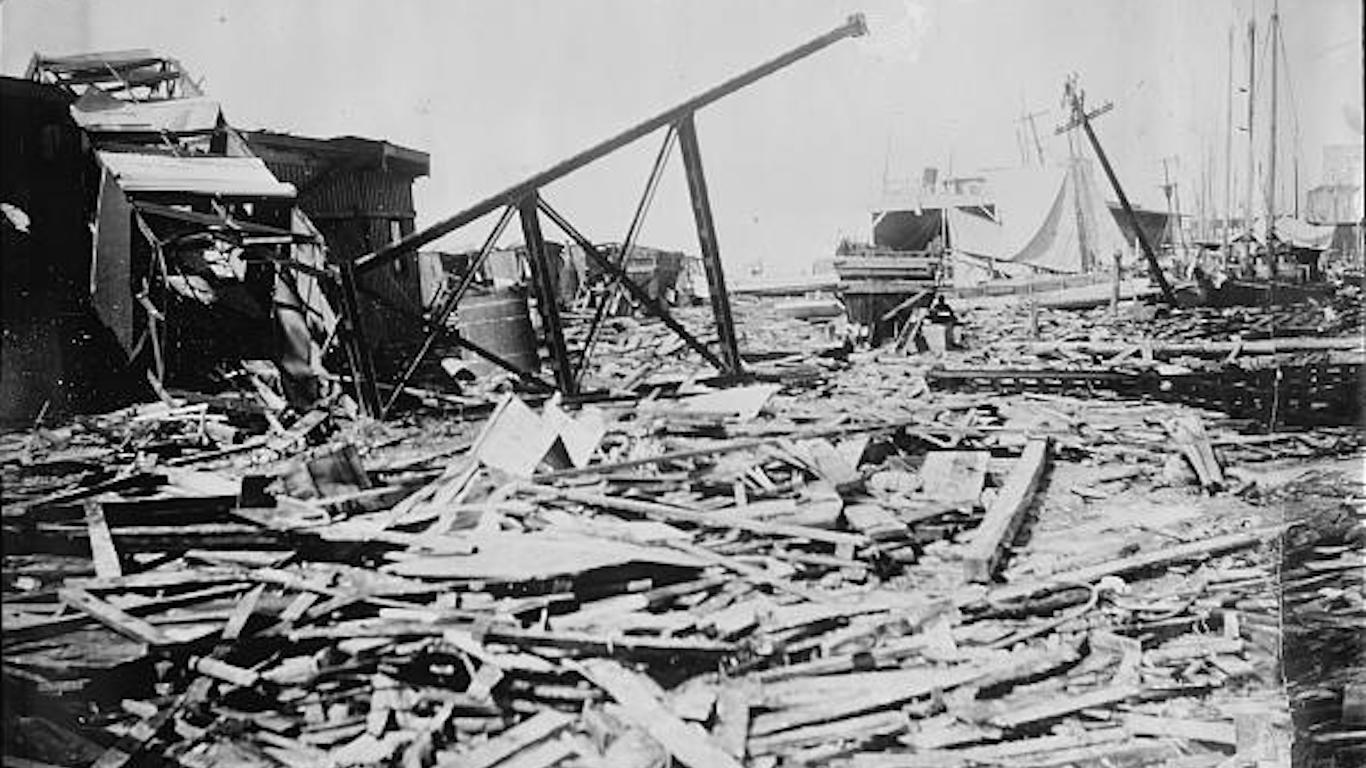
Hurricane season, which runs from June to October, has started early this year. Ana, still a subtropical storm, sits hundreds of miles off the U.S. east coast. The NOAA predicts this will be the start of a busy season, which it has given a 60% chance of being “above normal” in terms of the number of storms. The agency forecasts, however, that it will not match last year’s record count.
The size of hurricanes can be measured in several ways. The first is wind speed. Category 5 storms, at the top of the list, have wind speeds of over 158 MPH. Camille holds that record for storms that have hit the U.S. It came ashore with wind speeds over 190 MPH in 1969.
Another definition is the dollar sum of damage. Adjusted for inflation, Katrina, which crushed much of New Orleans, caused $160 billion of damage in 2005.
Perhaps the measure used most often is loss of life. By that measure, the largest was 120 years ago. The Galveston hurricane of 1900 killed as many as 12,000 people. So many were washed out to sea, it is impossible to give an exact count. Hurricane measurement tools were not sophisticated then. It has been listed as a Category 4 storm, but may have been stronger. And, the fatality level was high because there was no tool to forecast how large or fast the storm was. That meant no early warning system.
The storm is known both as the Great Galveston Hurricane and the Great Storm of 1900. The storm surge was as high as 12 feet and washed over the low-lying areas of Galveston, Texas. After coming across the Caribbean, it hit Galveston on September 8. About 20% of Galveston’s population died.
The storm eventually moved north through Oklahoma and did extensive damage in Chicago, which it hit with 84 MPH winds. It then moved through Michigan, struck Buffalo, and then crossed Connecticut and died out after hitting Boston on September 13.
Click here to read about the most powerful hurricanes of all time.
Want to Retire Early? Start Here (Sponsor)
Want retirement to come a few years earlier than you’d planned? Or are you ready to retire now, but want an extra set of eyes on your finances?
Now you can speak with up to 3 financial experts in your area for FREE. By simply clicking here you can begin to match with financial professionals who can help you build your plan to retire early. And the best part? The first conversation with them is free.
Click here to match with up to 3 financial pros who would be excited to help you make financial decisions.
Thank you for reading! Have some feedback for us?
Contact the 24/7 Wall St. editorial team.



